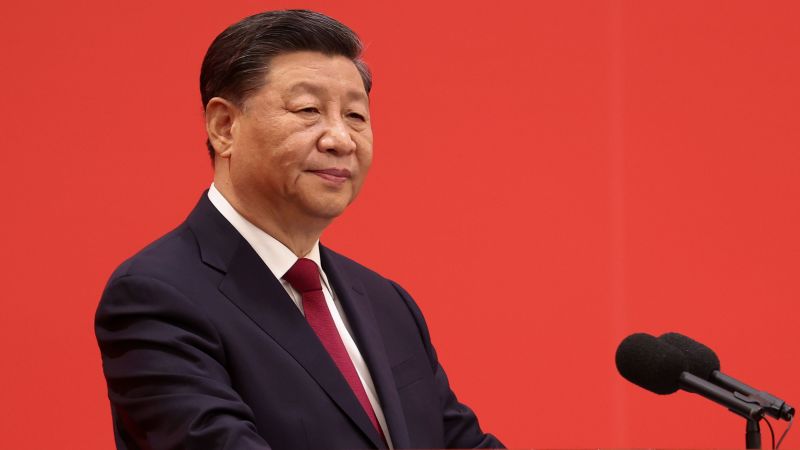
CNN
–
Xi Jinping’s unprecedented third term as China’s president was officially sealed by the country’s political elite on Friday, cementing his control and making him the longest-serving head of state in communist China since its founding in 1949.
On Friday, Xi was reappointed as president for another five-year term by China’s legislature in a ceremonial vote in the Great Hall of the People in Beijing — a highly coordinated exercise in political theater meant to showcase the legitimacy and unity of the country’s political elite.
He received 2,952 unanimous votes, followed by a standing ovation.
The reappointment of Xi, China’s most powerful and authoritarian leader in decades, was largely seen as a formality, after the 69-year-old secured a record-shattering third term as head of the Chinese Communist Party last fall.
In China, the presidency—or “head of state” in Chinese—is largely a ceremonial title. The real power lies in the positions of party chief and military chief — two key roles that Xi also holds and were reappointed at a key Communist Party congress in October.
However, his reappointment as head of state formally completes his transition into a second decade in power.
It comes amid a broader shuffle of leadership roles in the central government, or State Council, and other government organizations that are increasing Xi’s already strong grip on the levers of power.
Li Qiang, one of Xi’s most trusted protégés, is expected to be chosen as China’s prime minister on Saturday.
Traditionally, the premiership is an influential role in charge of the economy, though over the past decade its power has been severely eroded by Xi, who has taken nearly all decision-making into his own hands.
On Friday, the National People’s Congress (NPC) also appointed other key state leaders, including Zhao Liji as chairman of the assembly and Han Zheng as vice president of the country.
All of the newly appointed leaders took a public oath of allegiance to the Chinese constitution inside the Great Hall of the People.
The National People’s Congress also approved a comprehensive plan to reform institutions under the State Council, including the formation of a financial regulator, a national data office, and the reform of the Ministry of Science and Technology.
The comprehensive reform is another move by Xi to consolidate Communist Party control over key areas of policymaking.
While Xi has secured a firm grip on power, he faces a myriad of challenges at home and abroad.
China’s economy is struggling to recover from three years of harsh coronavirus restrictions, investor confidence is waning, and a demographic crisis looms as the country records its first population decline in six decades.
China also faces a series of diplomatic headwinds from Washington and other Western capitals, as relations have soured in recent years over Beijing’s human rights record, military buildup, handling of Covid and a growing partnership with Russia.
in Unusually direct remarks Xi on Monday accused the United States of leading a campaign to suppress China and causing serious internal troubles.
“Western countries led by the United States have contained and suppressed us in an all-out way, which has brought unprecedented serious challenges to our development,” Xi told a group of government advisors representing private companies on the sidelines of an NPC meeting.
Xi has now entered a new historical territory.
No Chinese leader has held the title of head of state for more than 10 years, including the founding father of communist China, Chairman Mao Zedong.
Liu Shaoqi, who took over as head of state from Mao in 1959, was sacked in 1968 and persecuted to death a year later during Mao’s turbulent Cultural Revolution.
After Mao’s death, supreme leader Deng Xiaoping introduced presidential term limits into China’s constitution in 1982 to avoid the kind of chaos and disaster that saw Mao’s lifelong rule.
Deng also led institutional reforms to achieve greater separation of posts and functions between the party and the state.
However, these efforts have been severely undermined by Xi, who has greatly expanded the party’s grip on power—and his control over the party.
In 2018, China’s legislature abolished presidential term limits in a ceremonial vote, effectively allowing Xi to rule for life.




More Stories
Journalists convicted in Hong Kong sedition case
Stand News: Hong Kong journalists convicted of sedition in case critics say highlights erosion of press freedom
Shark decapitates teen off Jamaica coast